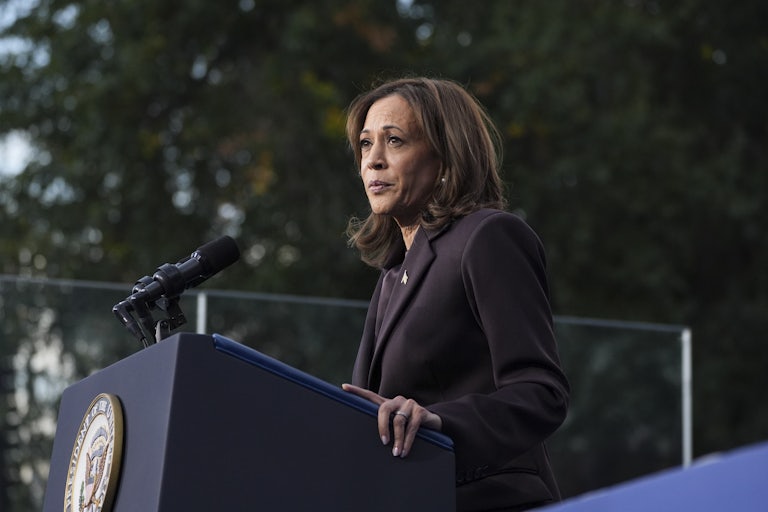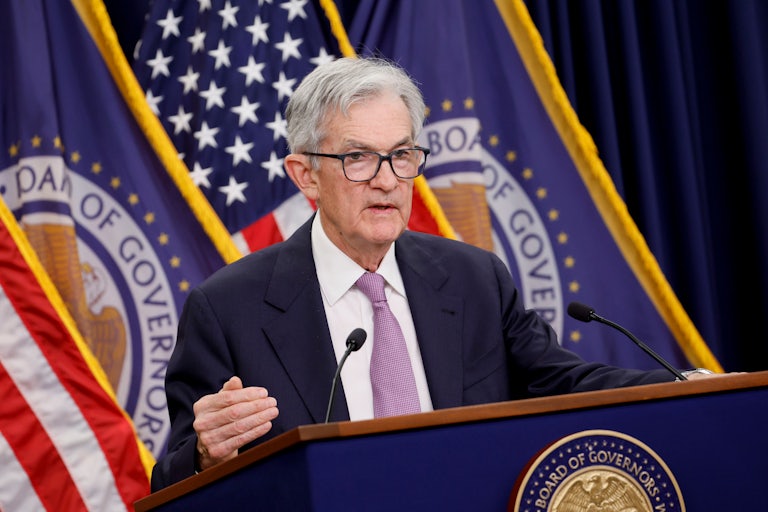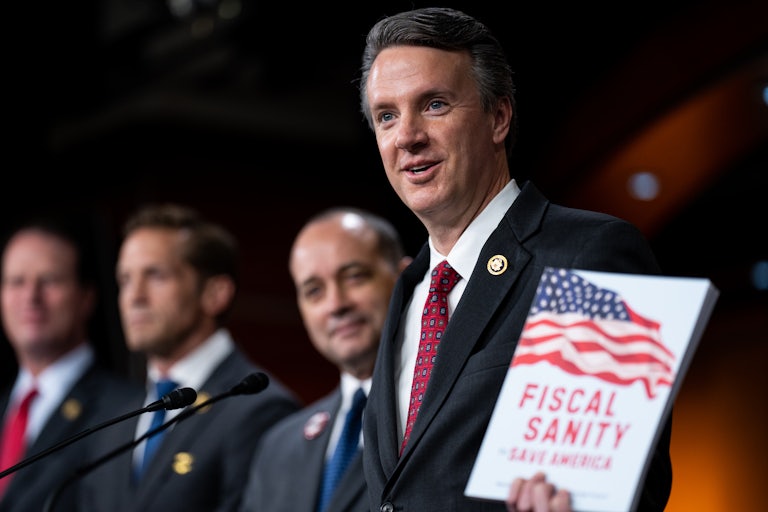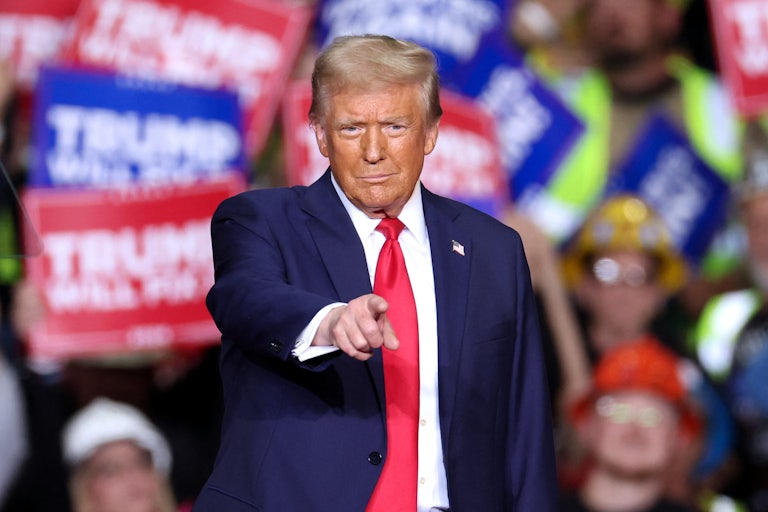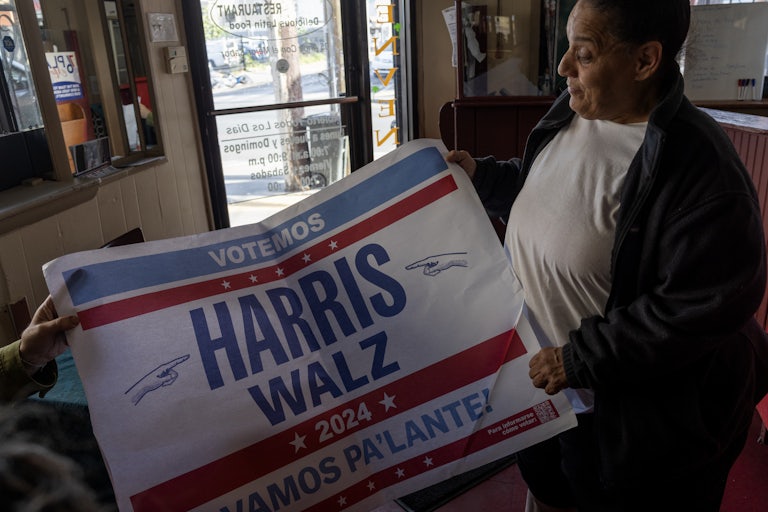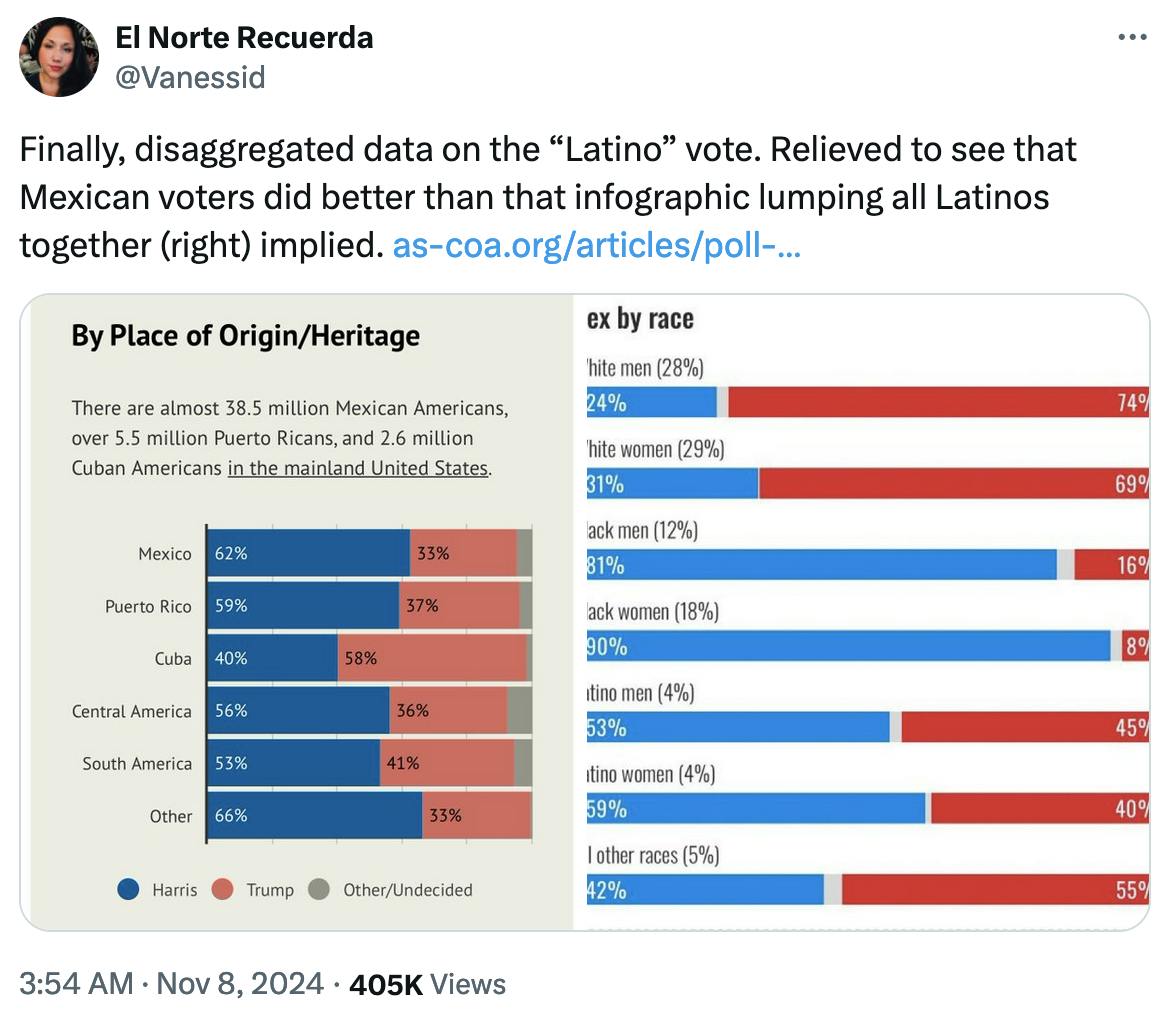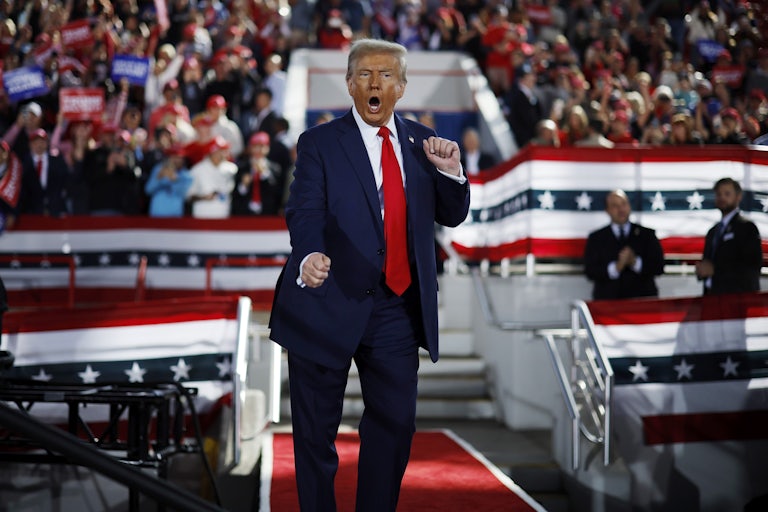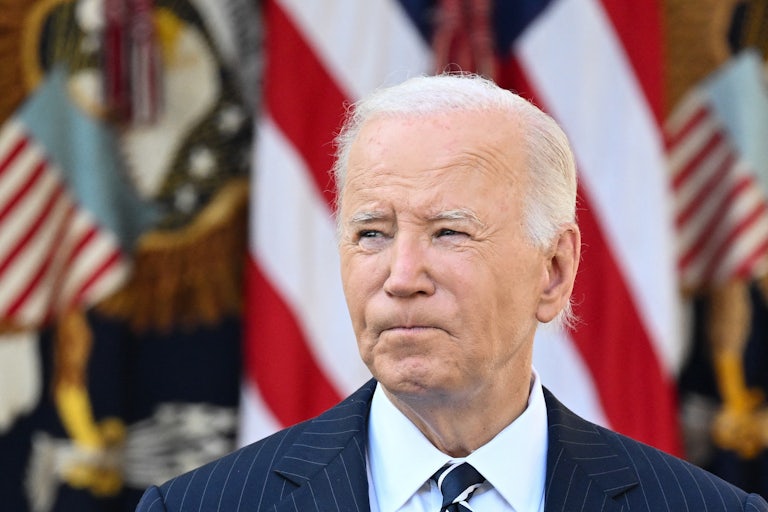Here’s Just How Badly Democrats and Harris Pushed Muslim Voters Away
A new exit poll reveals how the Democratic Party has damaged its relationship with Muslim voters in 2024 thanks to its backing of Israel’s war on Gaza.

American Muslims broadly rejected Vice President Kamala Harris in the 2024 election, according to a new exit poll.
The Council on American-Islamic Relations released the results of its national election poll of 1,575 verified American Muslim voters, and they do not reflect well on the efforts of the Harris campaign to hold onto what had been a solid Democratic constituency. The poll shows that Green Party candidate Jill Stein received 53 percent of votes, followed by Donald Trump with 21 percent, and Harris with 20 percent.
In a Michigan-specific poll of 502 registered Muslim voters, Stein got 59 percent support, followed by Trump at 22 percent, and Harris with a tiny 14 percent of the vote. The results show a significant backlash to the Biden administration’s handling of Israel’s brutal war in Gaza, which has killed at least 43,508 Palestinians, including more than 16,765 children, as well as how the Harris campaign chose to tackle the issue.
“Our final exit poll of American Muslim voters confirms that opposition to the Biden administration’s support for the war on Gaza played a crucial role,” said CAIR National Government Affairs Director Robert S. McCaw in a statement. The poll was conducted by Molitico Consulting LLC through text messages, with a margin error of 2.47 percent.
CAIR’s exit poll from 2020 was less extensive, only polling 844 registered Muslim voters, but had 69 percent of respondents saying that they voted for Joe Biden, with 17 percent choosing Trump, showing a big drop-off during this election. Another 2020 poll estimated even more Muslims backed Biden, a whopping 86 percent.
CAIR’s findings are different from the results in Dearborn, Michigan, the country’s largest majority Arab American city, where 42 percent of voters chose Trump, 36 percent went for Harris, and 18 percent went for Stein. But in CAIR’s poll as well as Dearborn’s results, the common factor was that Harris was rejected and that Stein received a much bigger portion of the vote than in the national results.
The Harris campaign refused to have an Arab or Palestinian speaker at the Democratic National Convention in August, and last week, the Democrats’ messaging to Muslims and Arab American voters included Bill Clinton saying Israel was “forced” by Hamas to kill civilians in Gaza at a rally in Michigan, which drew a large backlash.
Trump sought to capitalize on Democrats’ missteps, visiting Dearborn in the week before the election and attacking Harris for campaigning with Liz Cheney, the daughter of former Vice President Dick Cheney. Arab and Muslim voters in Michigan do not think highly of the elder Cheney’s support for the U.S. invasion of Iraq in 2003, but they also remember his daughter’s reputation for supporting torture and anti-Muslim bigotry.
Trump likely drew votes from Muslim and Arab American voters for this reason and picked up endorsements from metro Detroit Muslim and Arab politicians. Likewise, Stein’s support of an arms embargo against Israel, her support for a cease-fire in Israel’s wars in Gaza and Lebanon, and the fact that she held a campaign event in Dearborn in September helped her gain Muslim and Arab American voters in Michigan and the U.S. overall.
These survey results show that the Democratic Party will have to seriously reevaluate its policy stances in order to win back Muslim and Arab American voters. At the very least, they seem to have cost Harris valuable votes in the state of Michigan, which she needed to win. In the future, Democrats can’t neglect or ignore the issues that Arab American and Muslim voters care about like they did this year.
